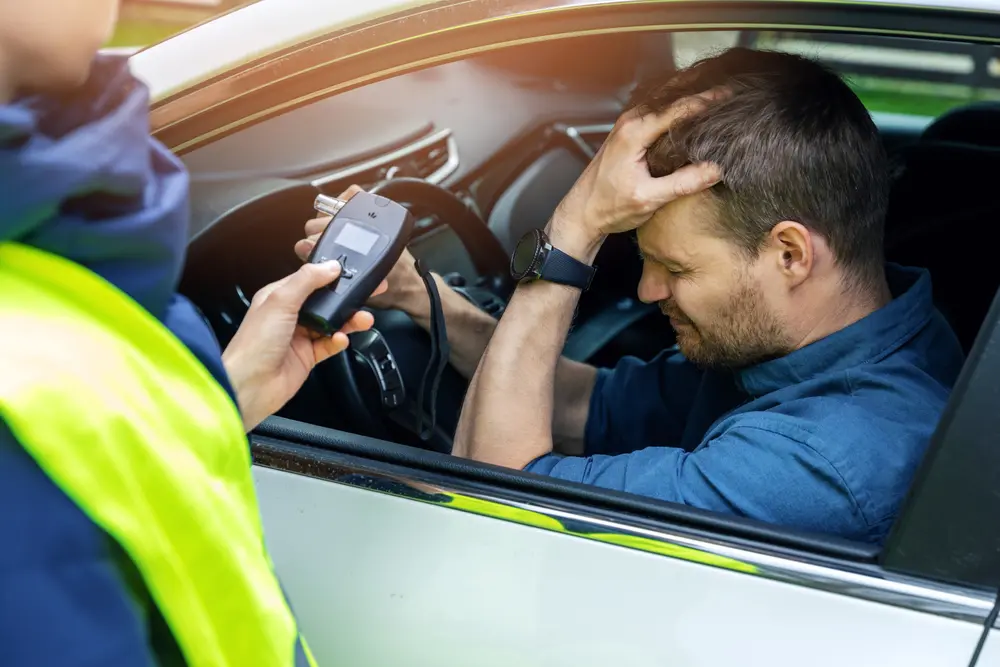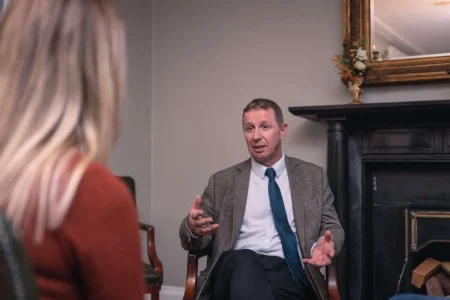Is drink driving ever safe? What are the dangers of drink driving? As alcohol affects everyone differently, the answer to this question is ‘No.’ The only truly safe option when you’re driving is to completely avoid drinking alcohol, as it’s difficult to know how much alcohol could put you over the limit and cause a hazard on the road.
Even small amounts of alcohol can impair reaction times, coordination, and judgment. Therefore, drink driving poses a serious risk to the well-being of the driver and other people on the road.
What are the Dangers of Drink Driving?
Driving under the influence of alcohol carries serious risks. It’s physically dangerous–both for those driving the car and other people on the road–and can have legal consequences if caught or if an accident occurs.
Why Do People Drink and Drive?
People might end up drink driving based on a couple of factors. The first of these is that alcohol severely impairs people’s judgment. We may make decisions and act in ways that we never would when sober. Therefore, someone might not recognise how much their physical and cognitive abilities have been affected by a couple of drinks. They may, instead, believe that they are in control behind the wheel.1
A second factor involved in why someone might choose to drink and drive is misplaced confidence; perhaps they’ve done it before without any consequences, so they choose to do it again. Peer pressure could be another consideration, as there are social ‘kudos’ to being able to hold one’s drink. Therefore, if friends are relying on someone for a lift home, instead of incurring their wrath, they might decide to risk it.
Not all people who choose to drive under the influence have an alcohol problem, but alcohol misuse may contribute to drink driving. According to research, alcohol misuse can cause people to engage in more risky behaviours, such as drink driving, than people without addiction issues.2
None of these reasons for why someone chooses to drink and drive is valid. Drink driving risks the lives of everyone in the car, other drivers on the road, and pedestrians.
How Does Drinking Alcohol Affect Driving?
Driving requires all our faculties to be intact – we need to focus and pay attention at all times.
However, alcohol causes careless driving as it is a depressant drug, affecting the functioning of the brain, impairing judgment, and lowering inhibitions. It also induces feelings of relaxation and drowsiness, which, when drink driving, can cause someone to fall asleep behind the wheel.1
Alcohol’s effects on the body include impaired vision, slower reaction times, lack of awareness of surroundings, poor concentration, difficulties with obeying the rules of the road, and multitasking. Each of these effects creates risks for drink driving.
Additionally, the ability to make sound decisions and judgements may be the first area of the brain to be impaired when drinking alcohol. So, decision-making abilities may be affected by alcohol before someone even notices that they’ve been impacted. Driving constantly requires us to make choices when faced with either ambiguous or risky consequences; therefore, driving under the influence of alcohol significantly increases the risk of accidents.1-3
What are the Signs Someone Is Drink Driving?
Here are some tell-tale signs that someone is drink driving. Look out for these signs to help keep yourself and others safe on the road.
The signs of drink driving include:
-
Swerving on the road:
Alcohol impairs vision and makes coordination and concentration difficult, so driving in a straight line becomes a challenge and leads to careless driving.
-
Overcompensating through excessive braking or slow acceleration:
Awareness that driving may be compromised by alcohol can cause people to overcompensate, but this can also become a hazard to other drivers.
-
‘Hugging’ the centre line:
Again, attempting to overcompensate, someone drink driving might try to play it safe by keeping to the centre line of the road–but they will still struggle with reaction times.
-
Tailgating:
Doubting their ability to drive safely or whether their driving is coming across as ‘normal,’ someone under the influence may copy the car in front by tailgating.
-
Severe road violations:
Someone who is significantly intoxicated might not be able to follow even the simplest rules of the road. They may drive without turning headlights on, drive on the wrong side of the road, use the incorrect indicator when turning, or go significantly over or under the speed limit.
While none of these signs are necessarily proof that another driver is intoxicated, if you notice someone driving this way, it’s still wise to keep as much of a distance as possible.
What to do if you are worried someone is drinking alcohol and driving:
If you’re concerned that someone is over the drink drive limit, you can:
- Try to smell alcohol on their breath. If they’re not holding an alcoholic drink but you can still smell alcohol off them, it’s cause for concern as they may be over the legal limit.
- Observe how much and how fast they’re drinking.
- Ask them direct and open-ended questions to determine whether they’re slurring their words or struggling to be coherent.
- Consider their coordination by watching whether they can balance, stand up from a chair without difficulty, or walk in a straight line.
- Pay attention to their energy levels and whether they seem too tired after drinking to drive safely.
- Get them to recall a recent, specific event or story to check their short-term memory. If they can’t, they may be over the legal limit.
Contact Us For Help With Addiction
If you are concerned about someone you know, contact us about our treatment options today.
Legal Drink Drive Limit in the Republic of Ireland and Northern Ireland
Northern Ireland
Under Section 5 of the Road Traffic (Northern Ireland) Order 1995, it is an offence to drive or be in charge of a motor vehicle in a public place if you are over the legal alcohol limit.
The legal limits in Northern Ireland are:
- 35 micrograms of alcohol per 100 millilitres of breath
- 80 milligrams of alcohol per 100 millilitres of blood
- 107 milligrams of alcohol per 100 millilitres of urine
Police in Northern Ireland may stop a driver suspected of drink driving and conduct a roadside breath test. If this test is failed, or refused without a reasonable excuse (such as a medical condition), the driver can be arrested.
More information is available on the NI Direct website, Road Safety section – Drink driving.
Republic of Ireland
In the Republic of Ireland, the Road Traffic Act 2010 outlines the legal alcohol limits for drivers. These limits are lower than in Northern Ireland, particularly for learners, newly qualified, and professional drivers.
The legal limits are:
For fully licensed drivers:
- 50 milligrams of alcohol per 100 millilitres of blood
- 22 micrograms of alcohol per 100 millilitres of breath
- 67 milligrams of alcohol per 100 millilitres of urine
For learner drivers, novice drivers (first two years), and professional drivers:
- 20 milligrams of alcohol per 100 millilitres of blood
- 9 micrograms of alcohol per 100 millilitres of breath
- 27 milligrams of alcohol per 100 millilitres of urine
Gardaí (police) can request a roadside breath test at any time. If a driver fails or refuses this test, they may be arrested and taken for further testing at a Garda station.
Full details are available from the Garda Síochána website, Road Safety – Driving Under the Influence of Alcohol or Drugs.
What are the Drink Driving Penalties in Ireland?
Drink driving is a serious criminal offence across both jurisdictions and carries strict penalties.
In Northern Ireland4:
- A first offence can result in a driving ban for at least 12 months, a fine, or up to 6 months in prison.
- Repeat offenders or those with high alcohol readings may face longer disqualifications, heavier fines, and possible imprisonment.
- Refusing a breath test without a reasonable excuse is also a criminal offence.
In the Republic of Ireland5:
- Penalties vary depending on how much over the limit the driver is.
- For lower-level offences, drivers may receive penalty points, fines, and a short-term disqualification.
- For higher-level offences, or for learner/professional drivers, penalties can include a minimum 6-month disqualification, large fines, and imprisonment.
- Refusal to provide a specimen can lead to an automatic driving ban and a fine of up to €5,000 or imprisonment.
Some drivers may be offered a rehabilitation course to reduce the length of their driving ban in Northern Ireland, but this is not currently an option in the Republic of Ireland.
Causing Death by Careless Driving Under the Influence
If someone causes a fatal accident while driving under the influence of alcohol or drugs:
- In Northern Ireland, this can result in a life sentence, an unlimited fine, and a minimum 2-year driving ban.4
- In the Republic of Ireland, the offence of dangerous driving causing death can result in a fine of up to €20,000 and up to 10 years in prison and a lengthy driving disqualification.6
If you or someone you know has a drinking problem
If you’re concerned that you or someone you know has an alcohol use disorder, understand that there is no excuse for drink driving. Additionally, someone with an alcohol use disorder will not be given special treatment if they are caught drink driving.
Evidence shows people with an alcohol abuse disorder who engage in drink driving may be more likely to keep reoffending until they recognise they have a problem and accept treatment.7
Abstinence-based alcohol treatment programmes may be the most effective form of recovery for people who repeatedly drive under the influence of alcohol due to problems with alcohol dependence. Abstinence treatment for alcohol addiction can help to prevent the serious, negative consequences associated with risk-taking behaviours.
In this way, abstinence-based alcohol treatment programmes during alcohol rehab can offer long-term solutions and recovery, and, ultimately, save lives.
Get In Touch
If you or someone you know is concerned about alcohol addiction, get in touch with our team, today.
Frequently Asked Questions
-
What is the drink driving limit in Ireland?
In the Republic of Ireland, the legal drink driving limits are set out in the Road Traffic Act 2010 and vary depending on the driver’s licence type:
Fully licensed drivers:
- 50 milligrams of alcohol per 100 millilitres of blood
- 22 micrograms of alcohol per 100 millilitres of breath
Learner, novice, and professional drivers (e.g. bus, truck, and taxi drivers):
- 20 milligrams of alcohol per 100 millilitres of blood
- 9 micrograms of alcohol per 100 millilitres of breath
In Northern Ireland, the legal drink driving limit is:
- 80 milligrams of alcohol per 100 millilitres of blood
- 35 micrograms per 100 millilitres of breath
These limits are strictly enforced by An Garda Síochána in the Republic and PSNI in Northern Ireland, with roadside testing and severe penalties for those found over the limit.
-
Can I drive after drinking a pint in Ireland?
It is safer to avoid driving if you drink a pint of beer. A typical pint of beer (approximately 568ml) with an alcohol by volume (ABV) of 4.5% contains around 2.5 standard drinks. Consuming a pint can bring many individuals close to or over the legal BAC limit, depending on factors such as body weight, metabolism, and whether food has been consumed.
It’s important to note that alcohol affects everyone differently, and even small amounts can impair your ability to drive safely. According to DrinkAware, the safest choice is to completely avoid alcohol the night before having to drive.
-
Will I go to prison for drink driving in Ireland?
Drink driving is a serious criminal offence. Depending on factors such as repeat offences and damage inflicted, the penalties for drink driving or being over the drink drive limit in Ireland can include imprisonment, driving bans, fines, a criminal record, and increased car insurance costs.
-
Does drink driving affect car insurance costs in Ireland?
Yes, a drink driving conviction can have serious consequences for your car insurance in Ireland:
- Policy may be voided: If you’re caught drink driving or involved in an accident while over the limit, your insurer may refuse to cover any claims.
- Higher premiums: After a conviction, insurance becomes much more expensive. Many drivers face significantly increased premiums or may struggle to find cover at all.
- Loss of No Claims Bonus: If disqualified from driving, especially for more than two years, you may lose your no-claims discount entirely.
- Limited options: Some insurers will decline cover, so you may need to use a specialist provider.
- Disclosure is required: You must declare drink driving convictions when applying for insurance; failing to do so can invalidate your policy.
Even after your ban ends, the impact on your insurance can last for several years.
-
What happens if I’m caught drink driving more than three times?
In Ireland, being convicted of drink driving three times carries increasingly severe penalties. While specific penalties can vary based on circumstances, the following outlines the typical consequences for a third offence:
1. Longer Driving Disqualification
For a third conviction, you can expect a driving ban of at least 6 years, especially if your blood alcohol concentration (BAC) was significantly over the legal limit. For instance, a BAC exceeding 150mg per 100ml of blood can result in a minimum 3-year disqualification for a first offence, and 6 years for a second or subsequent offence.
2. Higher Fines and Imprisonment
The maximum penalty for drink driving in Ireland is a €5,000 fine and/or up to 6 months in prison. For repeat offenders, especially those with high BAC levels or involvement in accidents, courts may impose longer prison sentences and higher fines.
3. Mandatory Court Appearance
Unlike first-time offenders who might receive fixed penalty notices, a third offence will require a mandatory court appearance, where a judge will determine the appropriate penalties based on the specifics of the case.
4. Impact on Insurance and Driving Record
A third conviction will significantly affect your car insurance premiums, with many insurers either refusing coverage or charging substantially higher rates. Additionally, the offence will remain on your driving record, potentially impacting employment opportunities that require driving.
5. Potential for Rehabilitation Programs
While rehabilitation programs are more commonly offered to first-time offenders, repeat offenders may still be required to attend alcohol awareness or rehabilitation courses as part of their sentencing, especially if deemed necessary by the court.
Note: Penalties can be more severe if the offence involved aggravating factors, such as causing an accident, having a very high BAC, or refusing to provide a breath, blood, or urine sample.
For detailed information on drink driving offences and penalties in Ireland, you can refer to the Citizens Information website and Alcohol Action Ireland.
-
Will I be forced to attend an alcohol rehab programme if I am caught drink driving?
In Ireland, court-mandated rehabilitation courses for drink driving offences are not currently part of the legal framework. Unlike some other jurisdictions, Irish courts do not offer or require attendance in rehabilitation programs specifically designed to reduce driving bans following a drink driving conviction. Nevertheless, if your drinking is a problem or has led to repeated offences, seeking professional treatment could be the most important step you take. Smarmore Castle offers confidential, evidence-based addiction treatment for alcoholism. Get in touch with our team today to discuss your options for a safer future on the road.
*Please note: This content is for informational purposes only and is not a substitute for professional medical or legal advice. This information was fact-checked on 22nd May, 2025.
-
References
- Brevers, D., Bechara, A., Cleeremans, A., Kornreich, C., Verbanck, P., & Noël, X. (2014). Impaired Decision-Making Under Risk in Individuals with Alcohol Dependence. Alcoholism: Clinical and Experimental Research, 38 (7), 1924-1931.
- Roberts W, Moore KE, Pittman BP, Fillmore MT, McKee SA. High risk of alcohol-impaired driving in adults with comorbid alcohol and substance use disorders in the U.S. population. J Stud. Alcohol Drugs. 2019 Jan;80(1):114-9.
- Field M, Wiers RW, Christiansen P, Fillmore MT, Verster JC. Acute alcohol effects on inhibitory control and implicit cognition: Implications for loss of control over drinking. Alcohol Clin Exp Res. 2010 Aug;34(8):1346-52.
- nidirect government services. Drink Driving Penalties. [Accessed May 2025].
- Citizens Information. Drink Driving Offences. [Accessed May 2025].
- Citizens Information. Driving Offences. [Accessed May 2025].
- LaBrie RA, Kidman RC, Albanese M, Peller AJ, Shaffer HJ. Criminality and continued DUI offence: Criminal typologies and recidivism among repeat offenders. Behav Sci Law. 2007;25(4):603-14.



